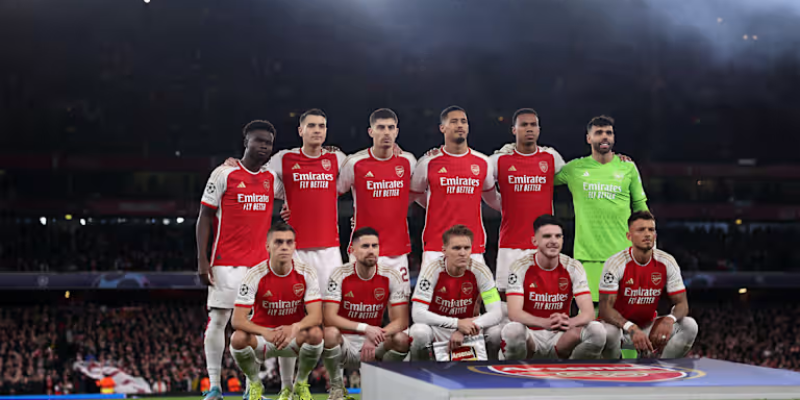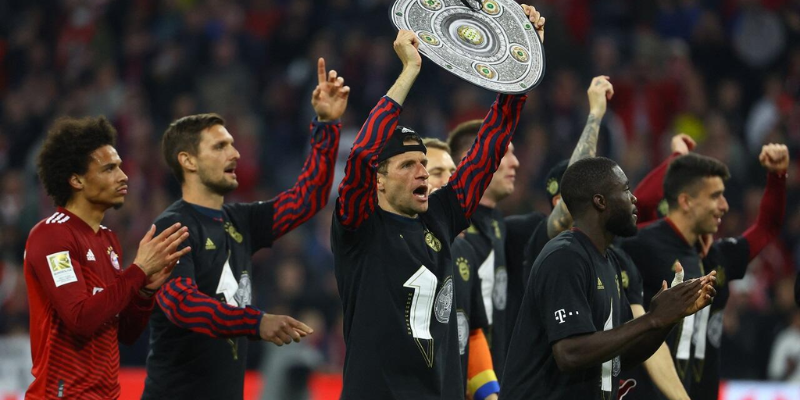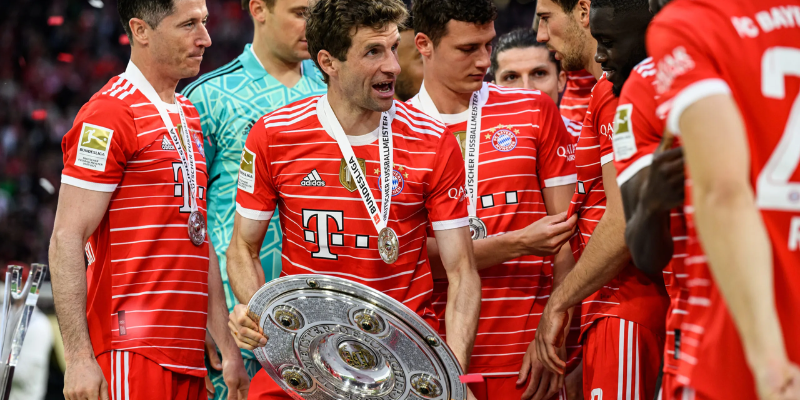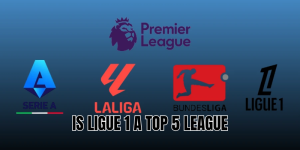In most people’s minds when they hear does Bundesliga have finals, they’re asking whether the German Bundesliga ends with a final match or playoff to decide the champion. The short answer: no, the Bundesliga does not have finals in the sense of a championship final or playoff game. The league champion is decided purely by league standings after every team plays each other, home and away, during the season. MatsuGoal will unpack what this means, how the Bundesliga works, and why some confusion around “finals” exists.
How Bundesliga season is structured

To understand why there’s no final in the Bundesliga, you need to know how the competition is set up.
- Round-robin format: The Bundesliga has 18 teams. Each team plays every other team twice in a season — once at home, once away. That makes 34 matches.
- Points system: Teams earn three points for a win, one for a draw, zero for a loss. At the end of the 34 matchdays, the team with the most points is crowned champion. Goal difference and goals scored can serve as tiebreakers if teams are level on points.
- End of season: There is no additional playoff between top teams, no final match to decide the champion. Once all matchdays are completed, the title goes to whoever has accumulated the highest total.
Why people sometimes think there are finals

There are several reasons why fans might confuse or expect a “final” in the Bundesliga:
- Final matchday drama Sometimes the title race is tight right until the last matchday. The final round becomes decisive: who wins, who draws, or who loses can change the destiny of the championship, European qualification, or relegation. That “final matchday” carries tension, but it’s not a single final game in a playoff format.
- Cup competitions Germany’s knockout cup (the DFB-Pokal) does have finals. After several elimination rounds, two teams compete in a single match — the Pokal final — to win the competition. That structure does feature a final
- Regional championships & historical contests Before the Bundesliga was established (1963), German football had various regional leagues, and overall national championships were sometimes decided.
What “finals” exist around the Bundesliga
Even though the Bundesliga doesn’t have a final match to decide its champion, there are a few “final-like” events connected to it:
- DFB-Pokal final: As mentioned, this is the German Cup. The final is held annually (usually in late May) at a neutral venue — the Olympiastadion in Berlin since 1985. Two teams fight it out to win this knockout competition.
- DFL-Supercup match: At the start of a season, there is a match between the previous season’s Bundesliga champion and the DFB-Pokal winner. That’s a single match, but not a “final” of the Bundesliga itself.
- Relegation/promotion playoffs: Occasionally, there’s a playoff involving teams near the bottom of Bundesliga and top of 2. Bundesliga to decide who plays in the top division. That’s not the same as a championship final, but it is a do-or-die game.
Comparison: Bundesliga vs Leagues with Finals or Playoffs
To better appreciate why fans might expect “finals,” it helps to compare with other leagues:
| League | Final/Playoff System? | How Championship Decided |
| Bundesliga (Germany) | ❌ No playoff final for the title | Top of table after full season |
| MLS (USA/Canada) | ✅ Yes, playoffs including a final (MLS Cup) | Playoff bracket after regular season |
| A-League (Australia) | ✅ Finals series after regular season | Grand Final match decides champion |
| Serie A (Italy), La Liga (Spain), Ligue 1 (France) | ❌ No final match; similar format to Bundesliga | League winners via standings |
Why the Bundesliga system appeals (and also its drawbacks)

Pros
- Fairness over consistency: Every team plays everyone twice. Over 34 games, random chance has less impact than in knockout formats. The most consistent team wins.
- Tradition and clarity: Fans know the path—the schedule, the stakes, the gradual buildup. The drama is spread across many matches.
Cons
- Less spectacle at the end (unless tight): If one team dominates early, the title may be decided with games to spare, making the final matchdays less exciting for neutral fans.
- Lesser “big game” moment: No single climax match like a championship final; the title presentation might happen weeks before the season ends.
Real-world example: 2024–25 Bundesliga season
To see how all this works in practice, consider the 2024–25 Bundesliga:
- Bayern Munich clinched the title without a final match or playoff. They secured the championship before the last matchday because their lead was unassailable.
- The final matchdays were still meaningful for other positions: European qualification, relegation spots, etc. But there was no “final game” to decide the champion.
FAQ: Common questions about “finals” in Bundesliga
Q: Could there ever be a Bundesliga final? A: Only if the competition format changes. As things stand, Bundesliga rules don’t include playoffs or finals to decide the title.
Q: What if two teams are tied on points at top? A: Goal difference is used first, then goals scored, head-to-head (depending on rules). So ties don’t lead to a final match.
Q: What about the relegation playoff? A: One or more teams near the bottom might play a playoff against a high-placing team from the lower division to decide who plays in next season’s Bundesliga. That’s the closest thing to a playoff in the league structure.
Conclusion
Does Bundesliga have finals? No — the Bundesliga champions are not decided by a final match or playoff. Instead, the league is settled over a full season, with each team playing every other both home and away. Consistency, goal difference, and total points are what count.
For fans who love big moments, there are still finals in German football via the DFB-Pokal (the national cup) and promotion/relegation playoffs. If you want drama, those matches deliver.
If you enjoyed this breakdown from MatsuGoal and you’re curious about how other countries handle their finals—MLS, Brazil, Mexico, etc.—just tell me. I can show you how Germany’s system stacks up globally.







